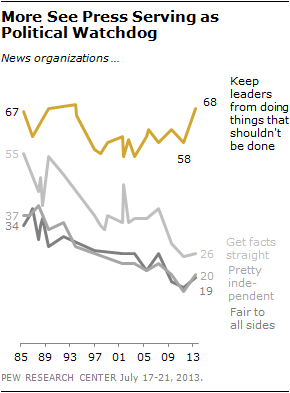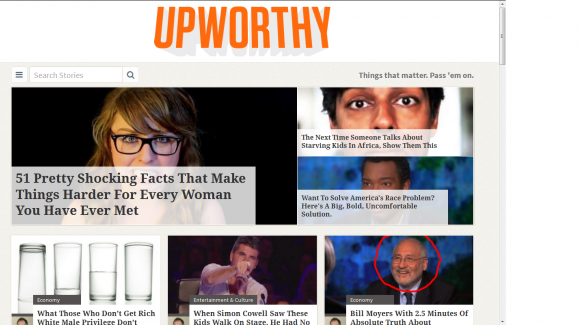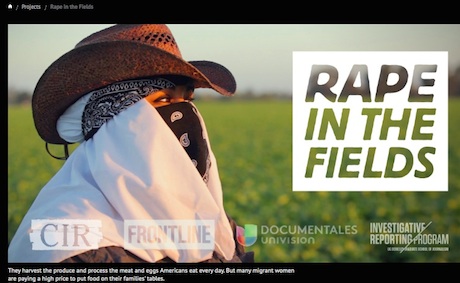Public evaluations of news organizations’ performance on key measures such as accuracy, fairness and independence remain mired near all-time lows. But there is a bright spot among these otherwise gloomy ratings: broad majorities
continue to say the press acts as a watchdog by preventing political leaders from doing things that should not be done, a view that is as widely held today as at any point over the past three decades. In the wake of revelations about government activities, including the NSA surveillance program and the IRS targeting of political groups, nearly seven-in-ten (68%) say press criticism of political leaders keeps them from doing things that should not be done, while just 21% say press criticism keeps leaders from doing their job. Support for the media’s watchdog role has risen 10 points since 2011 even as other press ratings have shown little sign of improvement. Read more here.
Source: Pew Research
News
For Measuring Impact of Journalism and Advocacy, Data is Not Just Data
For Upworthy, often the most important data is no data at all. In a Friday talk at the Columbia Journalism School, Daniel Mintz, director of Business Intelligence at Upworthy, explained that in many instances Upworthy does not make raw data about the success of its posts available to its curators. “If the data doesn’t help us make better decisions, that’s not useful data, that clouds judgment,” he said. “We get into fights with staff, ‘don’t take our data away’, we hide that data, because it’s just distracting.” Instead, Upworthy often replaced the data information with terms like “bestish” to offer insight to its curators on the reception of their content, or photos of Mintz with a thumbs-up or thumbs-down.
How CIR Measured the Impact of an Investigative Series
When Lindsay Green-Barber took a job as the at the Center for Investigative Reporting’s media impact analyst, she was struck by the difference between the way two stories were received.


